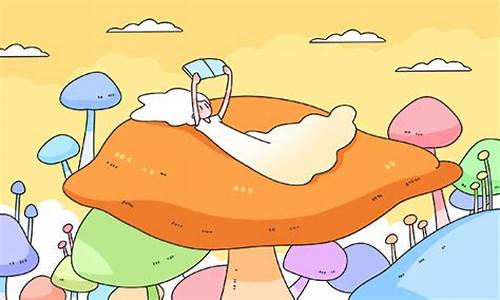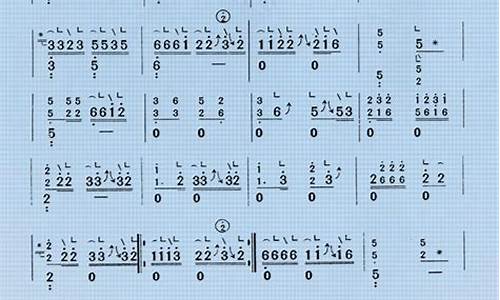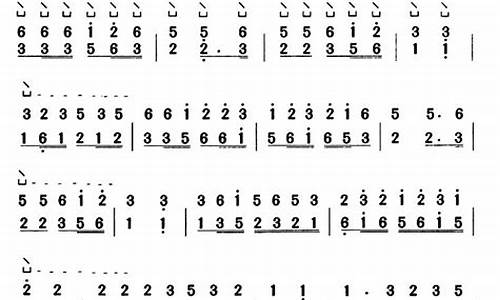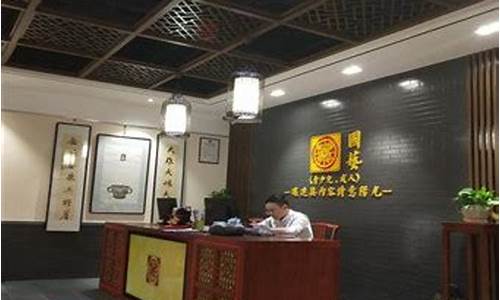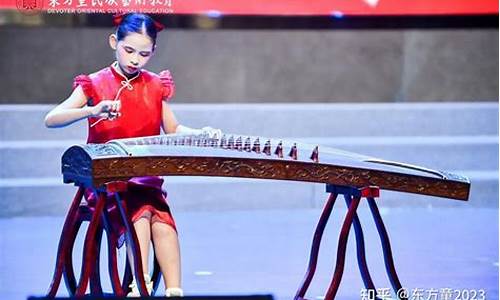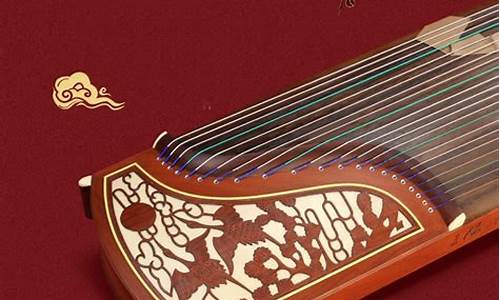上海成人学古筝_上海成人古筝培训班
1.古筝品牌十大排名
2.上海音协古筝考级通过率
3.布鲁斯口琴在上海那有学的吗?
4.中国民族乐器学哪个最好?

一般是考两首曲子,反正多准备一首以防万一呗,五级以下倒是可以跳级,五级以上的话,跳级很难考过,还是建议一级一级的考,不过中到高级要考乐理,乐理考不过是不准参加高级考试的。(我古筝八级,我都是这么考的,考的也是上海音乐学院)我们这边是每年八月份考级,他们专门有人在各个城市进行考试。
古筝品牌十大排名
一、中文翻译:
刘芳专访
第一部分
刘芳是一位国际知名的音乐家,以弹奏中国传统乐器见长。她出生于14年,从6岁起就开始弹奏琵琶。11岁起她就开始举办演奏会,包括英国女王访华期间为女王做的一场演出。刘芳毕业于上海音乐学院,1993年她还在那里学习弹奏古筝。
请您谈谈您在音乐方面的背景及训练情况,好吗?
我母亲是滇剧演员。滇剧是一种中国戏剧,里面有声乐、舞蹈及表演。我小的时候,母亲就带我去看节目。在会说话前,我就接触了音乐! 我5岁那年,妈妈教我弹月琴。1990年,我15岁的时候去了上海音乐学院,在那里,我学习了琵琶和古筝。毕业后,我回到故乡昆明,并在昆明歌舞团做了琵琶独奏演员。1996年,我和丈夫移居加拿大,直到现在。
弹奏琵琶和古筝最大的挑战是什么?
如果你的技术不够纯熟,就不可能弹好中国古典琵琶曲。另外,琵琶弹奏曲目很多———一些作品甚至作于唐代。琵琶流派很多,每个流派都有自己独特的诠释古典作品的方式。最大的挑战是尊重传统并融入自己的风格。对于我的第二种乐器———古筝,情况也是如此。
第二部分
请您谈谈哪些人或事对您在音乐方面产生了影响,好吗?
最主要的影响是民族音乐。我在年幼时就听传统戏剧和民歌。现在每当我演奏一个曲子时,我都会在心中跟着吟唱。当我演奏哀伤的乐曲时,我内心也在哭泣。听众都说能在我的乐曲中听到歌声。 您在演奏中想展示中国古典音乐的什么特征?
首先,中国民族音乐跟汉语很相似。在汉语中,读音相同音调不同,意义就不同。音乐也是如此。其次,中国古典音乐与中国诗歌关系很密切,因此很多古典音乐作品都有着很诗意的标题就一点也不奇怪了。再次,中国古典音乐与国画像孪生姐妹。在中国国画中,留有些空白,这些空白非常重要。它们给整幅作品带来生机,也使得观众融入图画,就像与图画进行对话。
中国古典音乐也是一样。乐曲中有停顿,人们认为这种停顿静谧之中充满了音乐。琵琶的声音和乐曲中的停顿结合在一起,给声音赋予了诗的意境。听众可以自己感受音乐的力量、音乐的美,就像享受一首美妙的诗歌或一幅美丽的图画一样。
第三部分
现场演出最让您感到愉悦的是什么?
我喜欢弹奏,也喜欢当众演奏。我喜欢音乐厅中的氛围,每当我举行音乐会的时候,我会很兴奋。在很长一段时间没做音乐会后,我会感到有点情绪低落和孤独。我同样喜欢音乐会后和朋友及音乐爱好者分享感受、交流看法,听他们谈对我的音乐的感觉和理解。我热爱我的事业。我也喜欢旅游;我喜欢坐在飞机上幻想,或者呆在旅馆里。
作为一个艺术家,您的目标是什么?
我没有特定的目标。但我希望能和很多作曲家共事,同时我希望创作我自己的音乐。我的音乐底蕴是中国民乐。自从移居加拿大,我就有机会接触到了其他音乐传统并跟一些音乐大师同台演出。我希望我能继续跟他们合作,并吸取其他音乐传统之长,创作自己的音乐。我也希望能使中国传统的琵琶和古筝音乐传遍世界的各个角落。
二、原文:
An Interview with Liu Fang
Part 1
Liu Fang is an international music star, famous for her work with traditional Chinese instruments. She was born in 14 and has played the pipa since the age of six. She‘s given concerts since she was eleven, including a performance for the Queen of England during her visit to China. She graduated from the Shanghai Conservatory of Music, where she also studied the guzheng in 1993.
What is your musical training and background?
My mother is a Dianju actress. Dianju is a kind of Chinese opera, which includes singing, dancing and acting. When I was a child, she took me to performances. I listened to music before I could speak! When I was five years old, she taught me to play the yueqin.
In 1990, when I was 15 years old, I went to the Shanghai Conservatory of Music, where I studied the pipa and the guzheng. After I graduated, I went back to my hometown of Kunming and worked as a pipa soloist of the Kunming Music and Dance Troupe. In 1996, I moved to Canada with my husband and I he been living there since then.
What are the biggest challenges of playing the pipa and the guzheng?
If your technique is not good enough, it is impossible to play classical Chinese pipa music. Also, the repertoire for the pipa is large – some pieces were written during the Tang Dynasty.
There are many different pipa schools, and each one has its special way of interpreting the classical pieces. The biggest challenge is to respect the traditions but to add my own style. The same is true of my second instrument, the guzheng.
Part 2
Who or what are your musical influences?
The main influence is traditional singing. I listened to traditional opera singing and folk songs in my childhood. Now when I am playing a tune, I am singing in my heart. When I‘m playing a sad tune, I am crying in my heart. Listeners often say that they can hear singing in my music.
What characteristics of Chinese classical music do you try to show in your playing?
Firstly, Chinese music is similar to the Chinese language. In Chinese, the same pronunciation with different tones has different meanings. The same is true for music. Secondly, classical Chinese music is closely connected to Chinese poetry, so it isn‘t surprising that most classical pieces he very poetic titles. Thirdly, classical Chinese music and traditional Chinese painting are like twin sisters. In Chinese art there are some empty spaces, which are very important. They give life to the whole painting and they allow people to come into the picture, like a dialogue.
It‘s the same with classical Chinese music. There are empty spaces, and people say the silence is full of music. The pipa sounds and the pauses combine to make a poetry of sound. Listeners can experience the power and the beauty of the music, like enjoying a beautiful poem or painting.
Part3
What do you like best about performing live?
I enjoy playing and I enjoy performing in public. I like the atmosphere in a concert hall and I always feel hy when I he a concert. I feel a little depressed or lonely when there is no concert for a long time. I also enjoy the time immediately after the concert to share the feelings and ideas with friends and music lovers, listening to their impressions and understanding about the music. I love my career. I also enjoy
treling: I enjoy sitting in a plane dreaming, or staying a hotel.
What are your goals as an artist?
I don‘t he a particular goal. But I hope to work with many composers, and I also wish to compose my own music. My background is traditional Chinese music. Since I moved to Canada, I he had
opportunities to make contact with other musical traditions and play with master musicians. I wish to continue working with master musicians from other traditions and to be able to compose my own music, using elements from different cultures. I also wish to introduce classical Chinese pipa and guzheng music to every corner of the world.
Street music
It‘s a warm Saturday afternoon in a busy side road in the old district of Barcelona. The pedestrians are
standing in a semi-circle around someone or something in front of the cathedral. I push my way through the crowd and find a quartet of musicians playing a violin suite of classical music. The session lasts ten
minutes. Then one of the musicians picks up a saucer on the ground, and asks for money. All contributions are voluntary, no one has to pay, but the crowd shrinks as some people slide away. But others hily throw in a few coins. They‘re grateful for this brief interval of music as they go shopping.
Below the window of my apartment in Paris, a music man takes a place made vacant by an earlier musician. He raises the lid of his barrel organ and turns the handle. Then he sings the songs of old Paris, songs of the people and their love affairs. I remember some of the words even though I he never consciously learnt them. I tap my feet and sing along with him. Down there on the pement, few passersby stop. Some smile, others walk past with their heads down. Cars pass, gangs of boys form and disear, someone even puts a coin the cup on the organ. But the music man ignores them all. He‘s hot in the sun, so he mps his head with a spotted handkerchief. He just keeps singing and turning the handle.
In Harlem, New York, some locals place a sound system by an open window. They plug it into the electrical socket, and all of a sudden, there‘s dancing in the streets. In downtown Tokyo, young couples eat popcorn and dance to the music of a rockabilly band, which plays American music from the Fifties. In the London Underground a student plays classical guitar music, which echoes along the tunnels. It lifts the spirits of the passengers, who hurry past on their way to work. In a street in Vienna or Prague or Milan a group of pipa musicians from the far Andes fill the air with sounds of South America.
The street musician is keeping alive a culture which has almost diseared in our busy, organized, and regulated lives: the sound of music when you least expect it. In a recording studio, even when relayed by microphone, music loses some of its liveliness. Bt street music gives life to everyone who listens and offers relief from the cares of the day. It only exists in the present, it only has meaning in the context. It needs space.
Music from China
One dozen beautiful young women, all in their twenties, take the stage and stand before a variety of ancient musical instruments. The moment they start to play, it is clear the members of Twelve Girls Band are among the most gifted musicians in the world. Coming from China, Twelve Girls Band is already one of that country‘s most popular groups.
As they build a musical bridge between east and west, Twelve Girls Band charms the people of many nations around the world. A best-selling act all over Asia, Twelve Girls Band fills concert halls and arenas there, and has now been discovered by America. In 2004 the group arrived on the US music scene at NO. 62 of the billboard 200 album chart. It was the highest entry by an Asian group. In Japan, Twelve Girls Band is already a supergroup. It has sold more than two million records, and has even eared in TV ads for chocolate and cellphones, among other products. A Japanese DVD of Twelve Girls Band live in concert sold over 200,000 copies, and their live performances he been seen on television around the world. In 2004 they were named International Artist of the Year at the Japan Golden Disc Award ceremonies.
Drawing upon more than 1,500 years of Chinese music, Twelve Girls Band mixes this rich tradition with classical, folk and contemporary sounds. The group signifies the symbolic choice of a dozen members found in various aspects of Chinese numerology with 12 months in a year, and in ancient mythology, 12 jinchai (golden hairpins, which represent womanhood). Inspiration also comes from yuefang, the female chamber orchestras that played in the royal courts of the Tang Dynasty.
Each member of Twelve Girls Band has classical training, with backgrounds that include the China Academy of Music, the Chinese National Orchestra, and the Central Conservatory of Music. Skilled multi-instrumentalists, they perform on traditional Chinese instruments that include the guzheng, the yangqin, the erhu, the pipa and the dizi and xiao.
The group‘s eal is equally as broad, with children, s, adults and grandparents filling arenas to see it perform. American critics noticed the mixture of pieces by Mozart and Beethoven, with jazz standards like De Burbeck‘s Take Five, or a version of a mush-loved classic such as Simon and Garfunkel‘s El Condor Pasa.
The group honours its musical heritage and shows a genuine love for all style of music – from complex classical works to long-lasting pop tunes.
上海音协古筝考级通过率
古筝品牌十大排名:敦煌、雅韵、龙凤、金韵、音美尔、碧泉、琼花、天韵、天艺、朱雀。
1、敦煌
敦煌古筝是一家创建于1958年的上海市名牌产品,产品类型涵盖了类口琴、口风琴、竖笛、古筝等乐器,也是一家产品品种较为齐全、生产规模较大的民族乐器生产企业之一,上海民族乐器一厂。
2、雅韵
雅韵古琴是一家创办于1982年的古筝十大品牌之一,专注于研发生产、销售古筝、古琴、二胡等民族乐器的企业,是一家曾先后获得江苏省名牌产品、江苏省著名商标等荣誉称号的现代化企业。
3、龙凤
龙凤古筝是一家成立于扬州的古筝品牌,而扬州又是一处盛产古筝的地区,其中重视外观设计的龙凤古筝品牌就是大家最为熟知的扬州筝的代表,其中掌握的双弧双箱制筝技术也使得成品的音色柔和绵长,演奏的曲目韵味十足。
4、金韵
金韵古筝是一家创办于1995年的的大型企业,以生产研制古筝、古琴等民族乐器为主要产业,同时还是中国乐器协会理事单位,旗下生产的古筝具有典型的扬州筝的特性,其中以红木素面、红木骨粉刻诗最为受欢迎。
5、音美尔
扬州音美尔民族乐器公司是一家诞生于扬州的规模型企业,集琴筝的制造研发、营销培训于一体,旗下产品涉及古筝、古琴、二胡、琵琶及其他相关配件等领域,并拥有超过20项的古筝产品专利。
6、碧泉
扬州正声民族乐器厂是一家在业界内享有较高声誉的企业,创办于上世纪九十年代,旗下产品涵盖了琵琶、箜篌、古琴、古筝等产品品类吗,且目前产品远销全国近30个省市自治区的乐器品牌。
7、琼花
这家创办于1986年扬州的品牌,是扬州最早的乐器类商标之一,凭借着技术精湛的专业设计人员和经验丰富的乐器制作技师,经过多年的发展成为国内规模最大的古筝制造企业之一。
8、天韵
扬州天韵琴筝公司是一家创办于2002年的中国乐器行业强势公司,凭借产品的高质量和较为出众的音色使该品牌目前的发展规模亿居同行业前列,并先后获得了江苏名牌产品、江苏著名商标等称号,目前品牌年生产能力可达5万余台。
9、天艺
天艺古筝以金丝楠木嵌贝和红木贴雕为品牌热门型号的古筝品牌,与碧泉古筝同源,同样都是诞生于扬州的中国民族乐器学会改革专业委员会副会长单位、中国乐器协会理事单位,是一家致力于为筝友们提供专业顾问服务和专业古筝及其配件的品牌。
10、朱雀
朱雀古筝又被称为西安音乐学院乐器厂,是一家创办于1958年的专注于研发生产秦筝的民族乐器品牌,凭借过硬的技术质量、日趋完美的声学品质制造出来的古筝赢得了行业和广大用户的极高赞誉。
以上内容参考百度百科-扬州音美尔民族乐器有限公司百度百科-扬州天韵琴筝公司
布鲁斯口琴在上海那有学的吗?
上海音协古筝考级的通过率因年份和级别而异。总体来说,其通过率相对稳定,但也有一定变化。
* 上海音协古筝考级整体通过率约为**40%**。
* 在2019年、2020年和2021年,该协会的古筝考级通过率均达到了**100%**。
请注意,这些是通过率是根据往年的数据进行的统计,对于未来的通过率,无法保证。考级时,准备充分、练习勤奋是提高通过率的有效方法。
中国民族乐器学哪个最好?
我建议你去好莱坞上海布鲁斯口琴培训学校。他们是上海教育局颁发的“A级学校”。并由行业权威专家,根据该校的学校规模、师资力量、办学理念等综合条件,严格考核、评估通过,才能获取考级考点资格。所以,去有考级考点的学校能保证教学质量,并通过考试获取《中国音乐学院社会艺术考级证书》,这对孩子以后考取理想的学校,能在才艺分数方面加分。学校有音乐培训类的:成人班、少儿班、钢琴 电子琴 即兴流行钢琴 吉他(古典/民谣) 摇滚电吉他 爵士鼓 竖琴 小提琴 大提琴 长笛 单簧管 萨克斯管 小号 长号 圆号 布鲁斯口琴 古筝 扬琴 琵琶 中阮 二胡 竹笛 箫 葫芦丝 声乐(通俗/美声/民歌) 乐理 电脑编曲舞蹈培训类的:少儿芭蕾 成人芭蕾 民族舞 拉丁舞 街舞 现代舞 爵士舞 莎莎舞 肚皮舞 交谊舞美术培训类的:儿童画 素描 水彩画职业培训类的:DJ (CD Play+tumtable Play+Mc) 司仪(婚庆主持)少儿思维培训类的:逻辑思维、看图说话、多元故事表演、拼音识字你可以去学校旁听老师上课,再决定是否培训!百度上输入“上海好莱坞音乐学校”里面有学校的!上面有分校地址和电话!
葫芦丝也不是很小众,因为实在太简单了。
既然你是上海的,我可以告诉你,任何乐器都有一流的老师,不需要去新疆。上海毕竟是国际级大都市,可以说大师如云,就看你花不花得起那个钱。上海民乐一厂更是民乐里的大品牌,只有你想不到的,没有买不到的乐器。
给你几个参考,箫可以吗?笛箫同源,其实专业学竹笛的都会吹箫,但是箫相对而言少见一些,一千块钱能买很不错的箫了,上海的箫是非常好的。不过学箫最好还是从笛子学起,不建议单学箫。还有就是埙,也不贵,肯定不超过一千块钱。还有排箫,中国的乐徽就是排箫的造型,很好听,一千块钱也能买到中等甚至中上等的。这几种乐器的老师都很好找,正规的竹笛老师肯定都能兼通。吹笙的人也不算太多吧,但是笙很难,而且一千块钱肯定买不下来。
弦乐器,琵琶也算是大众了吧?那就不推荐了,而且琵琶挺难的。柳琴或者中阮怎么样呢?这两种乐器指法相近,可以相通,不过弦乐器肯定比管乐器贵得多,一千块钱只能买档次很低的乐器。古琴在别的地方老师也许不好找,在上海太轻松了,古琴泰斗龚一就在上海,怎么会少古琴老师呢。
其实最简单的,就是你去好一点的琴行看看,比如上海民乐一厂的门市部,看看那里有什么乐器,看中什么就买什么,好的琴行里都是有老师的,至于学费,各地不同,不清楚上海的情况,而且也看你找什么级别的老师,上海音乐学院的很多名家可是多少钱都请不到的。
声明:本站所有文章资源内容,如无特殊说明或标注,均为采集网络资源。如若本站内容侵犯了原著者的合法权益,可联系本站删除。

